If you’re an artist, crafter, or designer looking to turn your creative passion into a profitable business, then selling on Etsy can be a great option for you. Etsy is the world’s largest online marketplace for unique and handmade goods. However, with so many sellers competing for attention, it can be challenging to get started and stand out from the crowd.
In this article, we’ll provide you with some essential tips and strategies to help you start selling on Etsy successfully. From optimizing your product listings to building your brand and tracking your business performance, we’ll guide you through the process of setting up your Etsy shop and growing your business. So, whether you’re a seasoned seller or just starting, keep reading to learn how to maximize your sales on Etsy.
In this article we’ll take a closer look at:
1. Start: How to sell on Etsy [Onboarding process]
- Choosing shop preferences
- Naming your Etsy store
- Starting to stock your Etsy shop
- Choosing the payment options
- Setting up billing
- Confirming security policy
2. Selling: Tips on how to sell on Etsy successfully
- Research your Etsy niche
- Start checking successful Etsy sellers beforehand
- Become a part of the Etsy community
- Set specific and attainable goals
- Add relevant categories and attributes
- Write an impressive “About” page
- Write effective product descriptions
- Take eye-catching product photos
- Make use of SEO for better Etsy search results
- Keep your Etsy store policy simple
- Understand Etsy fees
- Establish prices
- Use the shop announcement option
- Provide the best customer service
- Use social media
- Track cash flow
3. Final Thoughts: Is selling on Etsy worth it?
Start: How to sell on Etsy [Onboarding process]
If you’re new to Etsy and want to make sure you’re doing everything right, it’s essential to have a guide on how to set up an Etsy account.
The Etsy onboarding process includes 6 easy steps:

- Choosing shop preferences;
- Naming your Etsy account;
- Stocking;
- Choosing the payment method;
- Setting up billing;
- Ensuring the security of your store.
Let’s quickly look at each of them.
1. Choosing shop preferences

If you want to sell on Etsy, the first step is choosing the general settings for your business, such as selecting the language, country and currency. Just choose the most suitable options and move to the next step.
2. Naming your Etsy store

In case you’ve already had some ideas and envisioned your Etsy business, this step won’t be difficult. The conditions for the name are pretty simple, plus Etsy shows you if something is incorrect.
If someone has already created a shop with the name you wanted to use, the platform kindly suggests other variants that can be even better for your Etsy business.
Learn more about a better way to choose your Etsy business name in the Tip #5.
This step will be easy if you’ve already had some ideas and envisioned your Etsy business. The conditions for the name are pretty simple, plus Etsy shows you if something needs to be corrected. If someone has already created an Etsy account with the name you wanted to use, the platform kindly suggests other options that can be even better for your Etsy business.
Etsy allows you to use 20 characters for your shop name, and you must select the name when setting up your store. Although you’re free to change your Etsy store name down the road, you wouldn’t want customers to forget your brand because of multiple name changes.
Brainstorming and testing are the two main steps to coming up with the best store name. Start by making a list of options. Descriptive names like “Dan’s Handicrafts” are the easiest strategy. You can also try some abstract ideas for a more creative and unique name. Try combining words or phrases to showcase a point of interest related to your product.
3. Starting to stock your Etsy shop
So far, things have been going easy and fast, but the third step may catch you a little off guard as there are many options for your products. Get started to show your products.
Photos
The first thing you do before actually selling on the platform is adding a picture of your product. Etsy suggests different angles which display the item better.
Video
You can also add a fancy 5-10 second video showing your products and you can create videos easily with the help of online video creator. It’s optional, but Etsy points out that videos are usually more appealing to customers.
Listing details
Note: Keep in mind that Etsy allows only 3 different types of shops:
- Hand-made goods – items that are made and/or designed by you;
- Vintage items – must be at least 20 years old;
- Crafting supplies – tools, ingredients, or materials whose primary purpose is to be used in the creation of an item or organizing a special occasion.

After choosing the title and category for your Etsy business product, the platform shows you similar categories in which your product will also be found.
The other three points that are important when you sell on Etsy are:
- Renewal options – i. e. how your listing will be renewed as it expires. You can choose an automatic ($0.20 per time) or manual option. Each renewal lasts for four months or until the listing sells out.
- Type – state whether your product is physical or digital.
- Product description – to create a perfect product description, put yourself in the customer’s shoes and analyze which keywords are likely to appear in a search bar. You could also gather information about your competitors and the way they create their product descriptions.
Inventory and pricing
Choose the price and list the quantity of your product at hand so that you always have up-to-date information about your Etsy business. You can also fill in SKU information, but it’s optional.
Etsy shipping
Are you stressing out because of the Etsy shipping costs? This part isn’t as scary as it seems. When choosing the options for your online business shipment, you can save settings just for this listing or use it for all orders in your Etsy store in the future.
You’ll need to fill out your zip code, processing fees, shipping services and the countries where you ship. Note that Etsy calculates shipping prices.
4. Choosing the payment options
This step is simple. You must provide your personal information, taxpayer address and state the account to which your deposit will be transferred.
According to Baymard Institute, 6% of online shoppers have abandoned their carts because there weren’t enough payment options. It’s important to consider that while online shopping is becoming the norm, potential customers will still hesitate to share their credit card details online, no matter how secure your website is. This lost opportunity can be easily avoided by maximizing available payment options for your store.
Etsy store owners should take advantage of Etsy Payments. This allows you to offer various payment options without opening multiple merchant services accounts. Etsy payments can be used to accept:
- Credit cards
- Debit/bank cards
- Etsy Gift Cards and Etsy Credits
- PayPal
- Google Pay
- Apple Pay
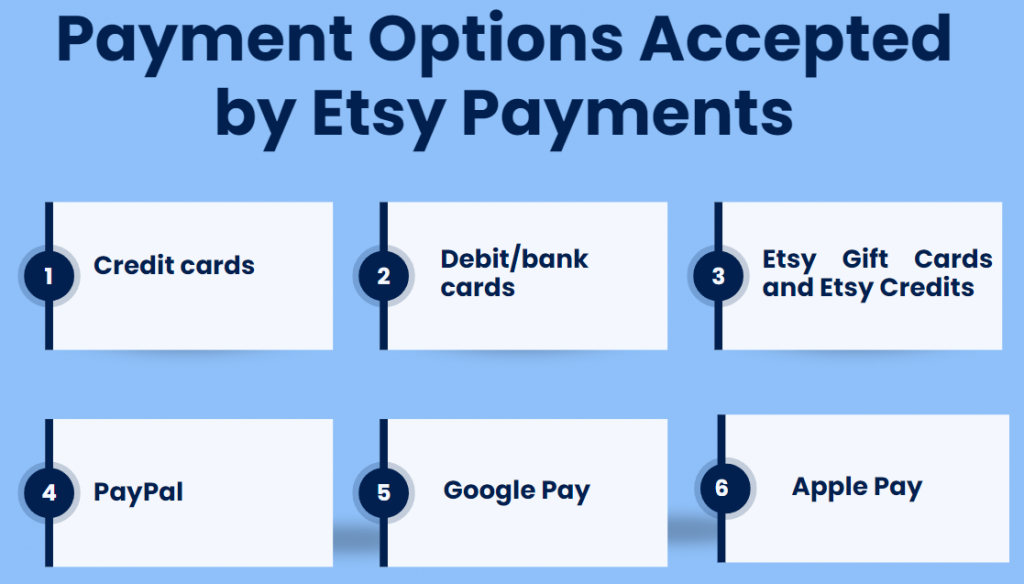
5. Setting up billing
To sell on Etsy, you need to fill out the information about your online business credit card and business address. Keep in mind that you won’t be charged immediately. Etsy will add $0.20 to your bill for the listing in your shop, which will be due on the first day of the following calendar month.
6. Confirming security policy
The last step of setting up your online store before starting to sell is designed to make sure that all your information and your store, in general, are protected.

You can choose to verify the information via a phone call, text message or authenticator app.
That’s it! Now your business is ready to go live!
Let’s move on to the tips on how to grow your Etsy business successfully.
Selling: Tips on how to sell on Etsy successfully
1. Research your Etsy niche
This tip is extremely important when you’re selling on Etsy. Start looking for what sets your products apart. According to Statista, Etsy currently has 7.5 million active sellers. With this much competition, you need to find something that stands out. It doesn’t mean you have to come up with something new, but you should know how to position your products against others. For example, you might use higher-quality materials or include more colorful options. Your niche should be evident to anyone who looks at your shop. You can include multiple products, but they should all fit into a clear category for your customers.
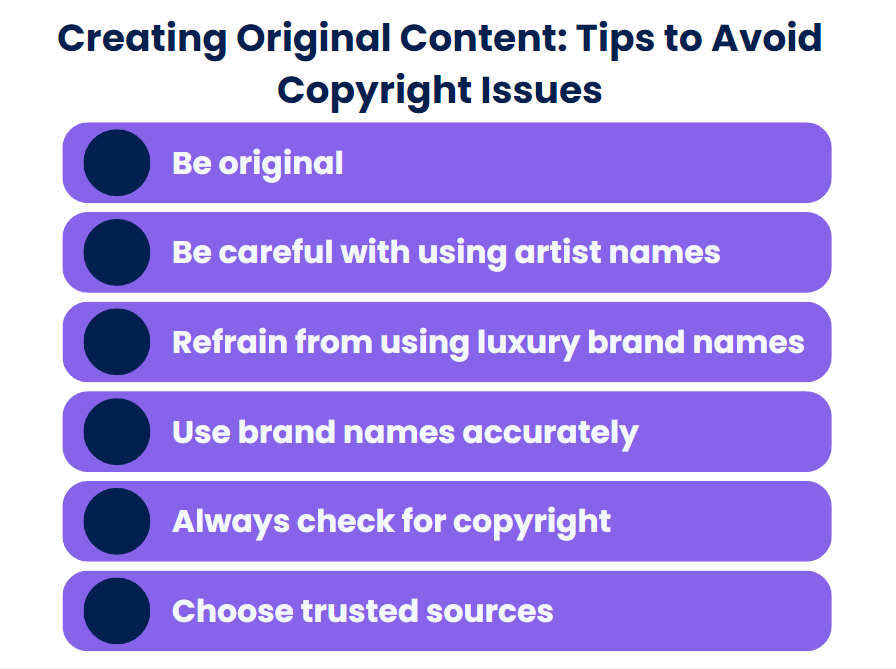
Get inspired, but don’t copy. There are some important points to remember:
- Never use the name of an artist who inspired your work, as the artist may claim that your sales result from their brand.
- Avoid tagging your items with a specific luxury brand in an effort to describe the quality of your product.
- Using the brand name in the title, tags, and description of vintage products is allowed, but avoid using brand names if you aren’t sure it’s the right one.
- Always check for copyright when using someone else’s photos, even if the product on the image is generic.
- Avoid purchasing licensed images from stores with a poor reputation.
2. Start checking successful Etsy sellers beforehand
You can look up some top Etsy shops to compare and learn from the best online businesses. Look for items that are similar to the niche you’re considering jumping into. However, don’t copy their style because if you do, odds are you’ll fail. You must come up with your own style! The top Etsy sellers are the ones who have worked hard to build up a good repeat customer base. Find out how to do this by answering the following questions:
- Are the items desirable?
- What’s the price range?
- Are they offering free shipping and a higher price, or a lower price and higher shipping?
- Do you pay attention to tags, titles, and keywords?
- What kind of pictures do they use? Will yours be as good?
- Is the shop using social media?
- Could that social networking be helping them?
- How good are their customer service reviews?
- Do they streamline their sales?
Note: Pay attention to the marketing as well. Try to search something like “offsite Etsy ads” or “ads for Etsy business” to find more options.
Do your research, and you’ll realize that some of these shops have gone viral thanks to Etsy’s publicity or being featured by an outside article or source. This is how you can decide what you need to do.
3. Become a part of the Etsy community
The Etsy community is vast, and it’s in your best interest to join it. Try participating in the site’s forums by providing feedback to other sellers and reaching out to your favorite Etsy sellers for advice. To build in-person outreach, search for local events through the forum or your community social app to participate in. Attending events (both online and offline) within your own community, such as meetups and pop-up shops, is a good opportunity to spread awareness and network with other sellers and potential buyers.
4. Set specific and attainable goals
Before starting to sell on Etsy, identify small milestones that would lead your online business to where you want to be in a manageable, achievable way rather than creating task lists based on your long-term goal. Your task list will become much more manageable with a clear focus on reaching one smaller objective.
Note: Read our article about creating an actionable business plan step by step for your e-commerce business and learn how to set and achieve goals.
5. Add relevant categories and attributes
Categories help Etsy match your products with the right buyers. Identifying your product’s most specific subcategory gives your listings a better chance of being found in search results. Attributes refer to characteristics that are best associated with your product, such as color, use, and occasion. Like categorizing, assigning more specific attributes gives your product a better chance of being showcased to the right buyers.
The most basic strategy for identifying the best category for your online business and attribute for your product is to conduct test searches. Make a list of all possible categories and attributes, then enter the words into the search bar. Check the search results and note/analyze the keywords that come up with products similar to yours. The left side of the page will give you all the relevant categories and subcategories, so feel free to explore refined results to find more matches for your product.
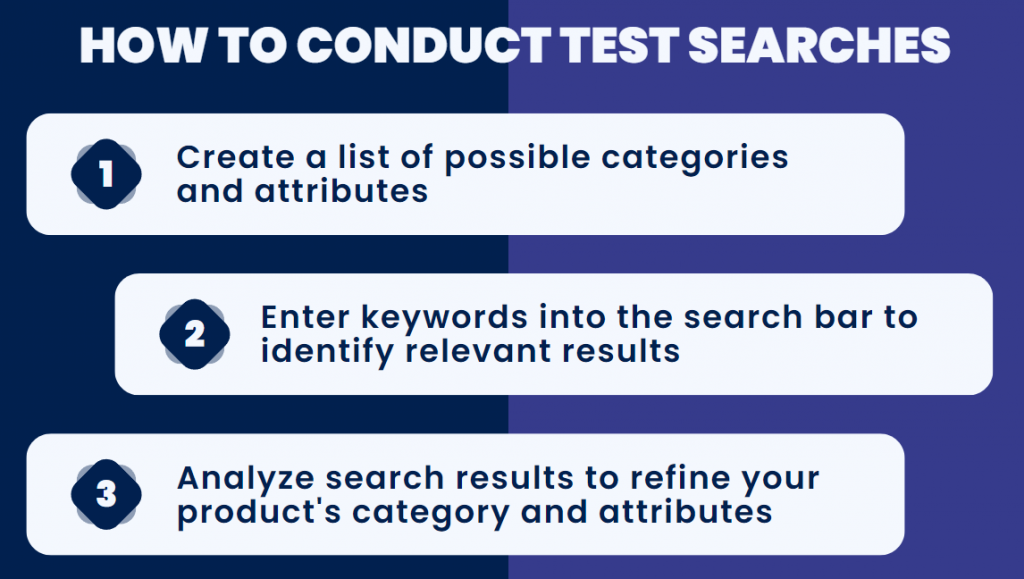
6. Write an impressive “About” page
Etsy is more than just a marketplace. It’s also a selling platform for creators like you to showcase their art. However, as a seller, you need to let buyers know the value of your creations to convince them to buy. Your “About” page should focus on the person behind the designs.
Here are some guidelines for creating the ideal “About” page:
- Use a personal tone to connect with your reader easily.
- Talk about the inspiration behind your designs.
- Introduce any partners you work with to develop your products.
- Keep your paragraphs short.
- Include links to your social media.
You have 5,000 characters to talk about your Etsy business – go for a more personal approach when writing your story. Add inviting photos and videos to help shoppers visualize and connect with your store. Include a link to your blog and social media or the landing page to opt-in to your email list.
7. Write effective product descriptions
The product description for your online store is an integral part of your listing. It details your product’s measurements, condition, color description, age, and the different uses of the item. Apart from the images, buyers rely on the information you include in this section to make their buying decisions, so you need to make sure that it’s descriptive and well-written.
Here are some ideas for writing product descriptions that sell:
- Use similar keywords to the ones you’ve included in your tags and attributes;
- Specify who the product is best for;
- Mention unique materials or techniques that buyers should know;
- Include the age or year for vintage product descriptions;
- Specify dimensions both of the product and the size of the package when shipped;
- Specify estimated production time and shipping;
- Include information on how to purchase the product.
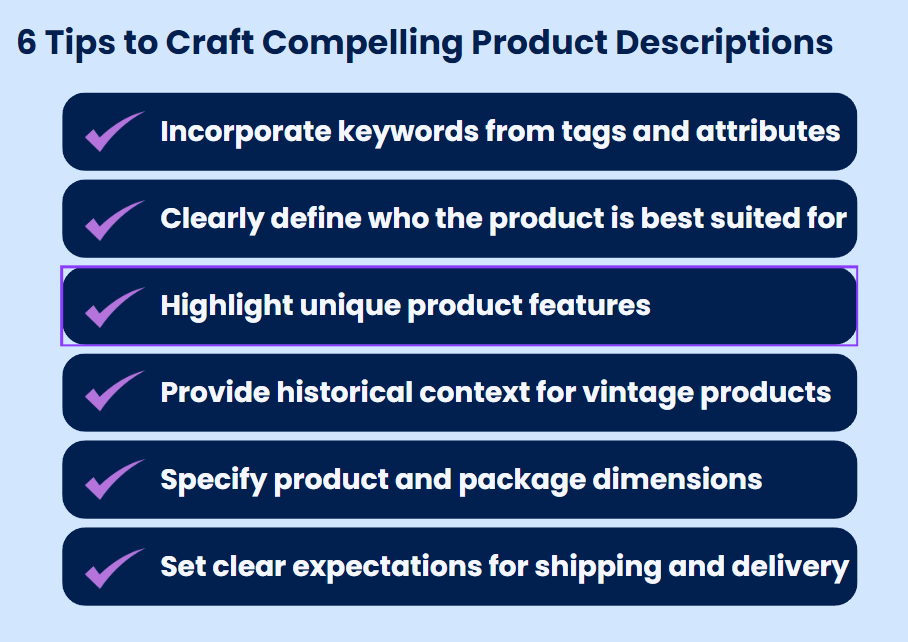
For example, if you want to sell printable items – a t-shirt with your own design, you can add some additional information about the product, such as size/colors/tags/material/etc. (optional).
It’s important to keep the language of your product description short and simple. Use paragraph breaks when necessary to make it easy to understand. Repeat any promotions or discounts applied to the listing when available.
8. Take eye-catching product photos
A picture is worth a thousand words and even more on Etsy. Be sure that you’re using quality, high-resolution photos that show your products professionally. Use different angles and depths to show the details of your items. To truly stand out on Etsy, consider using distinctive, high-quality images from Depositphotos to showcase the uniqueness and craftsmanship of your products, making them irresistible to potential buyers.
It’s always a good idea to post multiple images, with at least one of those photos showing the product in action. While you don’t have to hire a professional photographer, you need to use a good camera and present your products in a good light. You can also do the editing part for better lighting in a photo editing app.
9. Make use of SEO for better Etsy search results
Many of your potential customers will come from Internet search. It’s important to make your shop SEO-optimized for better Etsy search results. Doing so will help your shop and products rank near the top in web searches.
Consider everything from your business name to the selling product titles and descriptions. When writing product descriptions, you should address every aspect of the product (size, color, condition, uses, shipping, etc.) to minimize any concerns from a customer while satisfying the Etsy search engines. AI based SEO can help you create content that ranks on search engines to improve your Etsy search results.
10. Keep your Etsy store policy simple
Your Etsy selling policies should outline exactly what customers can expect when buying from your Etsy shop. These should include policies on order shipping, returns, and exchanges. For Etsy shipping, tell customers what carrier you use, how often you ship products, and when they can expect them. These vary by seller since some offer in-stock items that are ready to go right away, and others make each item to order.
It’s also a good idea to offer some opportunities for refunds or exchanges. Just outline in what situations you’ll accept these. For example, you might require proof that an item arrived damaged or never got to its destination. Or you could offer refunds to anyone who contacts you within a specific amount of time. Just be sure to provide clear information and then stay consistent.
It’s also worth noting here that Etsy does allow for the sale of some mass-produced goods that were designed by independent shop owners. Your shop policies should be honest about how your products are actually made or manufactured.
11. Understand Etsy fees
Joining and opening an Etsy shop is free. However, there are fees involved with running any business, including Etsy. Sellers should always know how much they pay for using the selling platform to make sure their budget planning is right. Sellers should also know when and how to pay account fees to keep their Etsy store in good standing. Knowing what and when to pay will also help sellers plan to minimize their Etsy fees.
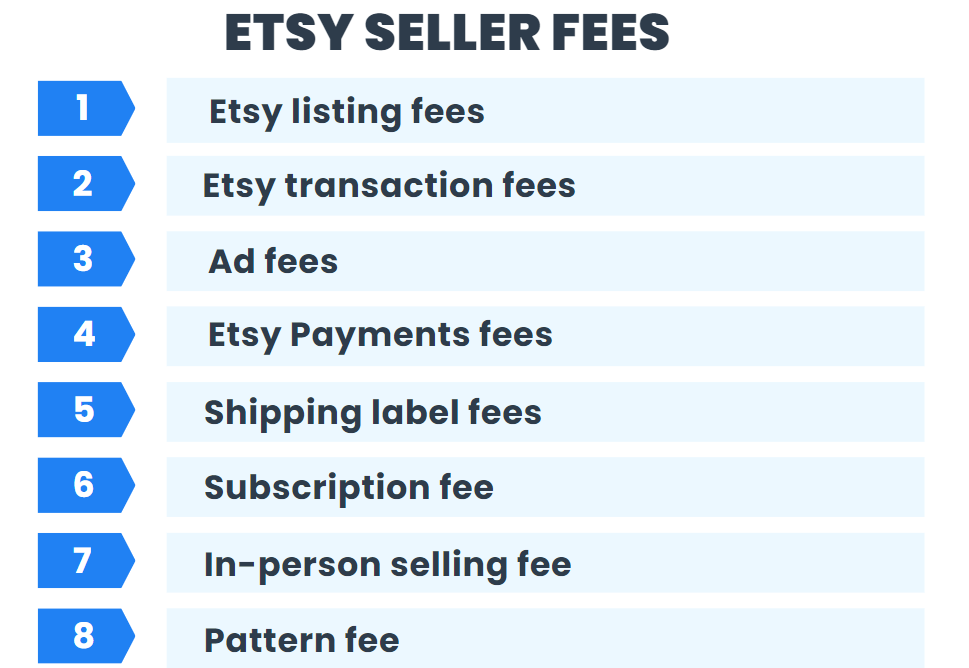
Listing fee
Listing fees are the seller fees Etsy charges for listing your shop items. Etsy charges $0.20 per listing. This sum is added to your payment account (that you set up in step six) when an item is listed.
You have to pay this Etsy fee for each product you list, regardless of whether or not the product sells. A listing expires after four months, and then, if you want to keep the listing in your shop, you’ll have to renew it and pay an additional 20 cents.
It’s important to note that listing fees are billed in U.S. dollars, so if you’re operating your Etsy shop in another country, your listing fee may be different based on the exchange rate.
Transaction fees
When an item from your shop is sold, Etsy charges a transaction fee. Etsy’s transaction fee is 6.5% of the total item cost, which includes shipping and gift wrapping and is charged in your designated listing currency.
Therefore, if your payment currency is different from your listing currency, Etsy will convert the fee amount from the listing currency to your payment currency based on the current market rate. With this, however, it’s important to note that if currency conversion is required, Etsy will charge a 2.5% fee for this process.
Payment processing fees
If you accept payments online on your Etsy shop using Etsy Payments, you’ll incur a payment processing fee for each transaction when an item is sold. The payment processing fees that Etsy charges will vary based on the location of your bank account. For U.S. sellers, Etsy charges 3% + $0.25 per transaction.
Moreover, if you’re selling in a location that is subject to VAT, or value-added tax, Etsy will incorporate this tax, as required, in both their payment processing and other seller fees.
Other fees
Other Etsy fees include advertising and promotion, subscription, in-person selling, shipping fees, etc. You may get acquainted with the full list here.
Most of them will depend on your particular situation, so it’s better to analyse everything beforehand carefully.
Want to learn more about the fees? Read the article about the fees involved when selling on Etsy.
12. Establish prices
Product pricing is one of the most important decisions a seller has to make for their business. Determining a competitive price while keeping your business profitable requires developing a strategy that can only be learned over time. This can be particularly challenging for Etsy sellers because creative products, by nature, are almost always unique, and the cost of materials and labor are always different.
Etsy’s seller handbook offers a helpful pricing worksheet and useful ideas for developing a pricing strategy:
- Make sure your price covers the cost of materials and labor.
- Make sure to account for overhead costs like shipping, marketing, advertising, and promotions when computing for profit goals.
- Do your research on competitor pricing.
- Consider your target audience.
- Consider the cost of shipping, which is based on the dimensions of the package and not just the item.
It’s also important to note that having the lowest price isn’t always the best. Most veteran Etsy sellers will tell you that customers are willing to pay more for better quality products.
13. Use the shop announcement option
Your Etsy shop announcement tells your buyers why they’re here and what makes you great. This can be a perfect solution when using it as Etsy advertising. It’s a way for you to communicate the main points to your customers quickly and a good opportunity to advertise your business and make connections. It can be an excellent way to sell your shop items when used correctly.
Your Etsy shop announcement is at the top of your shop under the main header. It forms part of your SEO on Etsy and should start containing keywords related to your shop, as the first few lines are searchable in Google.
There are many ways to use your Etsy shop announcement except for Etsy ads – mainly to notify of significant changes or restrictions in the shop, such as a change to postal fees, items which will come back into stock soon, etc.
Note: You may read more about how to make an Etsy shop announcement.
14. Provide the best customer service
Shoppers are more likely to buy from shops where they receive great support. Start offering customers the option to contact you by email, phone, text messaging services or chat. Keep your customers happy by replying quickly to any questions and feedback. Respond favorably to your customers if any problems arise, even if you feel that the issue wasn’t your fault. When on social media, be sure to reply to any comments or inquiries.
Throughout the buyer’s journey, support and follow up with your customers to ensure they enjoy their purchase. Begin sending out thank you emails or asking about their shopping experience to show customers your dedication to providing excellent service. Your best results will come from happy, satisfied customers that recommend your products to their friends through word-of-mouth marketing tactics.
Social media is essential when you have an Etsy shop. In fact, Etsy now gives you an opportunity to connect your social media, such as Facebook and Twitter, to your shop so you can keep your fans in the loop! There are also sharing tools like a pin-it button for Pinterest users to pin your items to their pinboards quickly.
When you run a good Facebook, Instagram, Pinterest, or Twitter account, it can all be helpful when you want to get an extra customer review. Just make sure you include links in your shop description so that customers can find your social media.
With a million items on the site and thousands of storefronts, Etsy has become the most popular place to sell if you have a home business idea. The site allows anyone to make a living affordably selling handmade, vintage, or art supplies.
So the only major barrier left between you and sales is visibility and getting people to focus on your items among all the other items for sale. Etsy gives you the storefront, but you must do your own marketing on Etsy, and social media is the way to do this.
16. Track cash flow
Financial health is essential when you want to make money on Etsy and keep growing. Make sure you simplify managing your business by using Synder – a comprehensive solution for your accounting.
Connect your additional sales channels (Shopify, Amazon, etc.) and payment platforms to Synder Sync, and enjoy automated bookkeeping. Synchronize your payment data in your accounting books and enjoy the following features and bonuses:
- simplified reconciliation process;
- customized categorization;
- accurate and detailed financial reports;
- inventory tracking, and more.
Keep your accounting accurate from the very beginning if you don’t want to feel stressed out at the end of the month. You certainly won’t be happy to manually check all the Etsy shop sales to find a small mistake in your balance sheet.
Synder will take care of all your Etsy sales, so you don’t have to spend sleepless nights trying to find out which payment you’ve lost and why the financial statement’s numbers don’t add up.
Book office hours to get a full walkthrough of Synder’s workflow with our specialists, or test the software’s features with a 15-day free trial. Either way, you won’t regret trying.
Final Thoughts: Is selling on Etsy worth it?
Absolutely! When you have the answers to all the important questions, selling on Etsy becomes much easier! With its massive audience of buyers and relatively low fees, it can be an excellent platform for showcasing and selling your unique products.
However, like any business venture, success on Etsy requires hard work, dedication, and a willingness to adapt to changes in the marketplace. To make the most out of your Etsy shop, you’ll need to focus on creating high-quality products, optimizing your listings, promoting your brand, and providing excellent customer service. With the right strategies and mindset, you can build a thriving business on Etsy that allows you to share your creativity with the world and achieve your financial goals. Ultimately, if you’re willing to put in the effort, selling physical products or digital downloads on Etsy can be a fulfilling and lucrative way to turn your passion into a career.
Share your Etsy experience
Do you have an Etsy shop? We’d love to hear from Etsy shop owners about their experiences on the platform.
Feel free to tell us about your journey, what you sell, any challenges you’ve faced, and the strategies or tips that have worked for you. Whether it’s about managing your shop, marketing your products, or building a customer base, your experiences can provide inspiration and guidance to fellow Etsy entrepreneurs. Share your Etsy experience in the comments below!


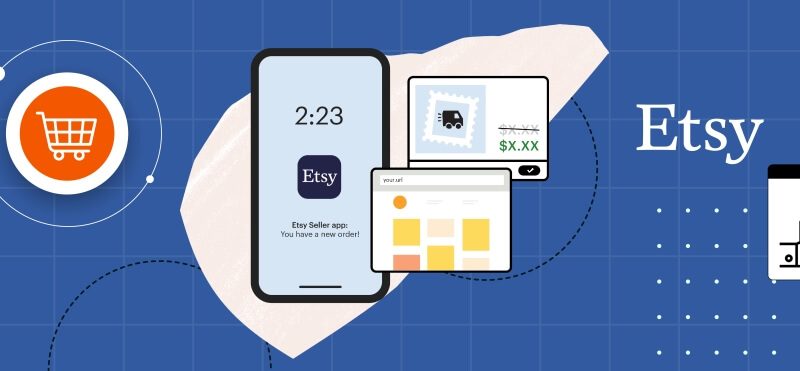





Great article!
Well written, well structured and easy to understand. Bravo! Put me on your mailing list.
Hi Renaud, thank you for your interest in our blog, we really appreciate that! We are currently creating an option for our readers to subscribe to our blog, so stay tuned!